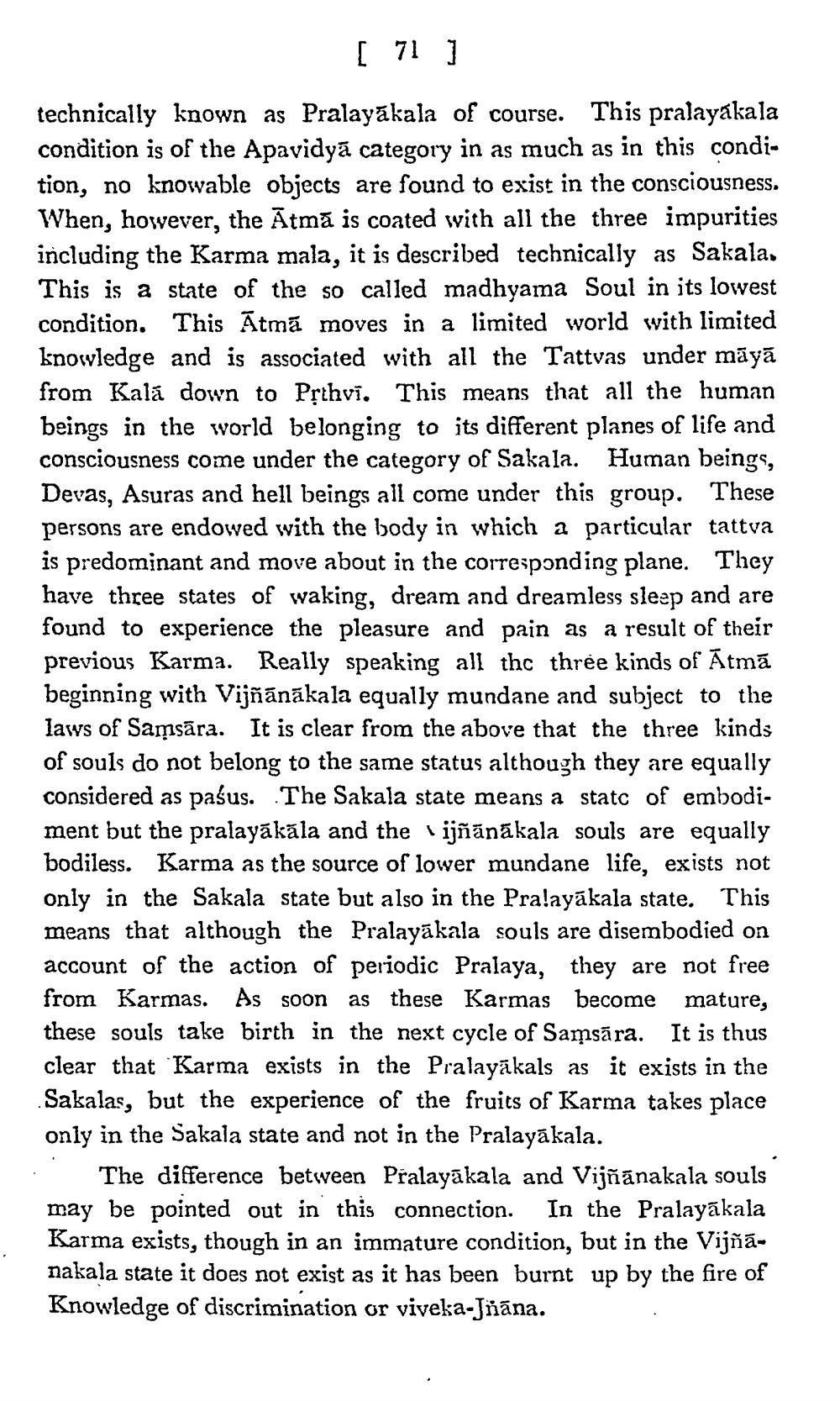________________
[ 71 )
technically known as Pralayākala of course. This pralayakala condition is of the Apavidyā category in as much as in this condition, no knowable objects are found to exist in the consciousness. When, however, the Ātma is coated with all the three impurities including the Karma mala, it is described technically as Sakala. This is a state of the so called madhyama Soul in its lowest condition. This Ātmā moves in a limited world with limited knowledge and is associated with all the Tattvas under māyā from Kalá down to Prthvī. This means that all the human beings in the world belonging to its different planes of life and consciousness come under the category of Sakala. Human beings, Devas, Asuras and hell beings all come under this group. These persons are endowed with the body in which a particular tattva is predominant and move about in the corresponding plane. They have three states of waking, dream and dreamless sleep and are found to experience the pleasure and pain as a result of their previous Karma. Really speaking all thc three kinds of Atmā beginning with Vijñānākala equally mundane and subject to the laws of Samsāra. It is clear from the above that the three kinds of souls do not belong to the same status although they are equally considered as pašus. The Sakala state means a statc of embodiment but the pralayākāla and the ijñānākala souls are equally bodiless. Karma as the source of lower mundane life, exists not only in the Sakala state but also in the Pra!ayākala state. This means that although the Pralayākala souls are disembodied on account of the action of periodic Pralaya, they are not free from Karmas. As soon as these Karmas become mature, these souls take birth in the next cycle of Samsāra. It is thus clear that Karma exists in the Pralayākals as it exists in the Sakalas, but the experience of the fruits of Karma takes place only in the Sakala state and not in the Pralayākala.
The difference between Pralayākala and Vijñānakala souls may be pointed out in this connection. In the Pralayakala Karma exists, though in an immature condition, but in the Vijñānakala state it does not exist as it has been burnt up by the fire of Knowledge of discrimination or viveka-Jäāna.




